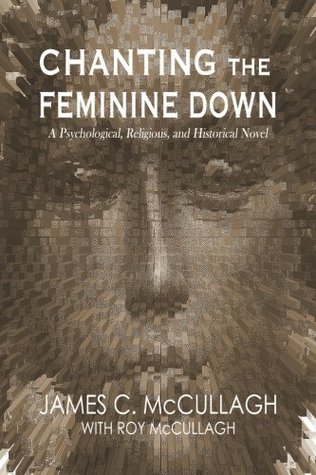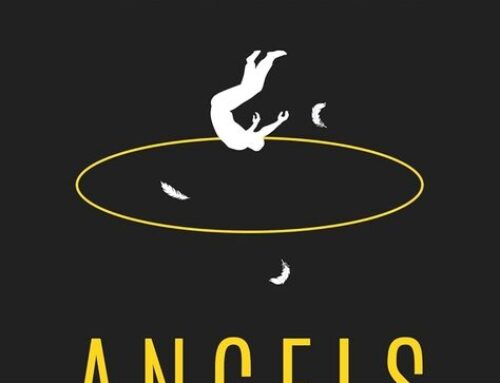
Religion and history are the driving forces behind Chanting the Feminine Down, a novel of psychological awakening by James McCullagh with Roy McCullagh.
Colette McGovern is an intelligent graduate student with a secret. She’s committed a mortal sin in the eyes of God and now she’s plagued by stark, dramatic and disturbing “tumbleweed dreams,” as she calls them. One of them, about the late Pope John Paul II, wearing lace – who slowly sinks into the ground, no less – is particularly powerful and vivid. Colette records all her dreams in her journal, even going so far as to name some of them. She secretly wonders whether her dreams are her penance for committing her mortal sin.
Her interests in religion, psychology and mythology have influenced her choice in thesis: examining the implications for women in the Catholic Church’s Council of Trent, established around the mid-sixteenth century. It’s not easy subject matter by any stretch, and Colette finds herself discussing issues with her professors, who guide her studies, in addition to the campus counselor she sees who helps her deconstruct and understand her vivid dreams. The deeper Colette delves into her thesis research, the more she is plagued by her escalating dreams and emotions which slowly penetrate her consciousness. Muddled by voices and conversations – some real and others not – her fragile psychological state soon comes to light.
McCullagh’s novel is an ambitious undertaking, to say the least. He has obviously put a great deal of time and effort researching various aspects of his book, evident from his references to a wide array of individuals throughout history – some real and some not – like the Greek mythological powerhouses, Odysseus, Pandora, and Aphrodite, Greek philosopher, Aristotle, Italian sculptor, Michelangelo, and Renaissance astronomer, Nicolaus Copernicus, to name but a few.
In the broadest sense, Chanting the Feminine Down highlights the struggles between archetypal psychology and theology. Colette, subconsciously struggling with her mortal sin, seeks a theological perspective through her dreams, her journal entries, and through her poetry. The story is presented through Colette’s two distinctly different perspectives: the conscious one – through discussions with her professors, her counselor, her mother, and through her journal entries – and the subconscious one through her dreams and a myriad of voices that she hears. This makes for an innovative framework that is at once cerebral and dreamlike.
The narrative is somewhat surreal at times, lending itself effectively to the fragile state of Colette’s mind. However, exposing that which influences the human mind, as well as what derails it through the use of narrative is a difficult task and this makes the story challenging to follow at times. McCullagh nevertheless writes with sensitivity and compassion, managing to capture the essence of Colette’s guilt and her sometimes strained relationship with her devout mother, a staunch attendee of Latin Mass still celebrated every Sunday in their Bronx neighborhood.
In all, Chanting the Feminine Down is an intensely thought-provoking novel, examining complex religious and psychological themes. It is best-suited for readers with more than a passing interest in spirituality and psychology, as it is a demanding read, but it is also an enriching and rewarding novel for the dedicated reader.
Book Links
STAR RATING
Design
Content
Editing
Get an Editorial Review | Get Amazon Sales & Reviews | Get Edited | Publish Your Book | Enter the SPR Book Awards | Other Marketing Services























Leave A Comment